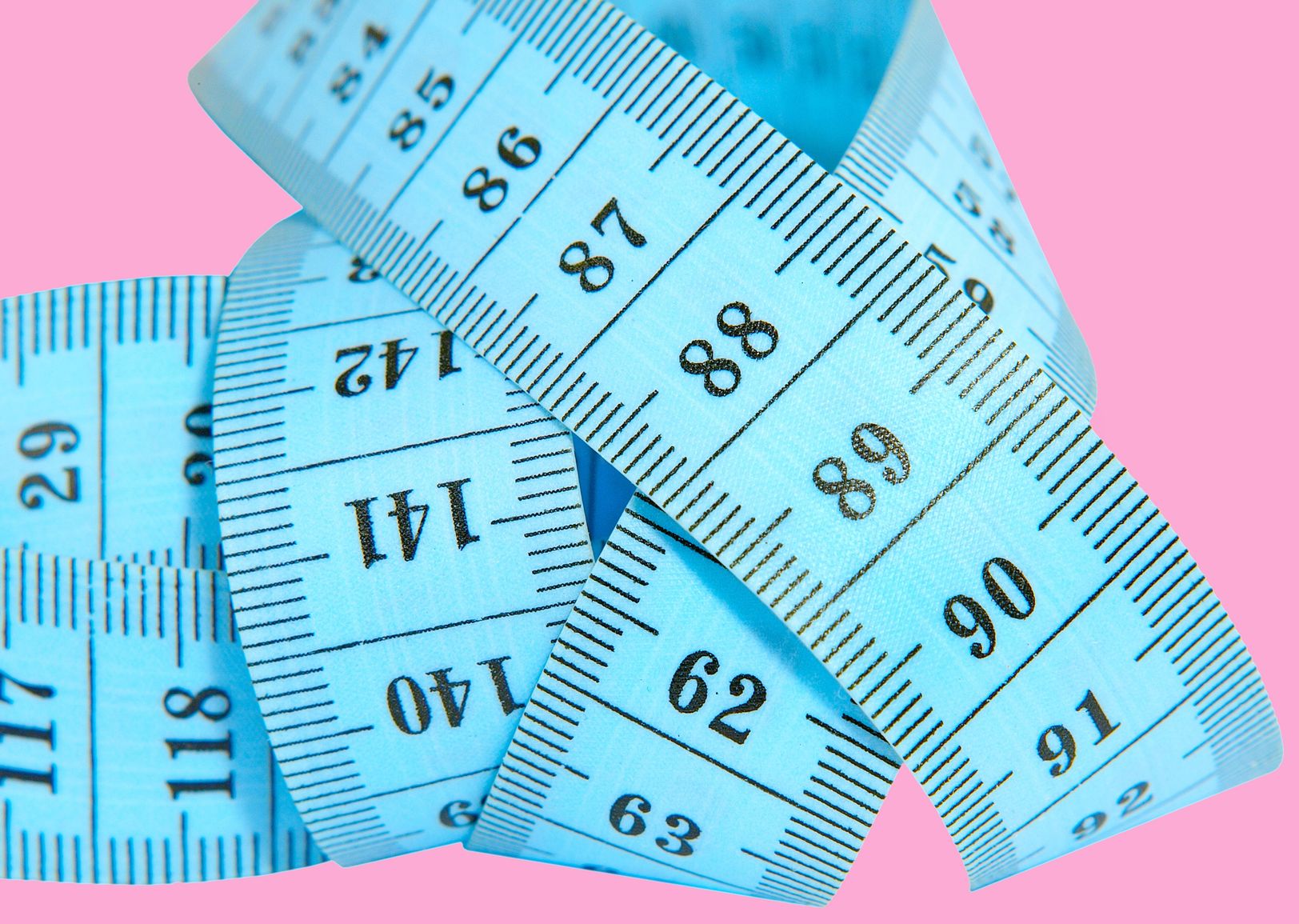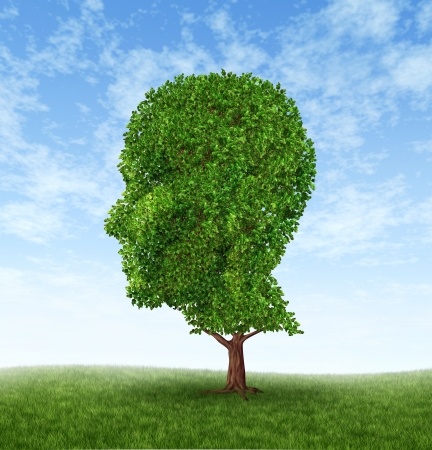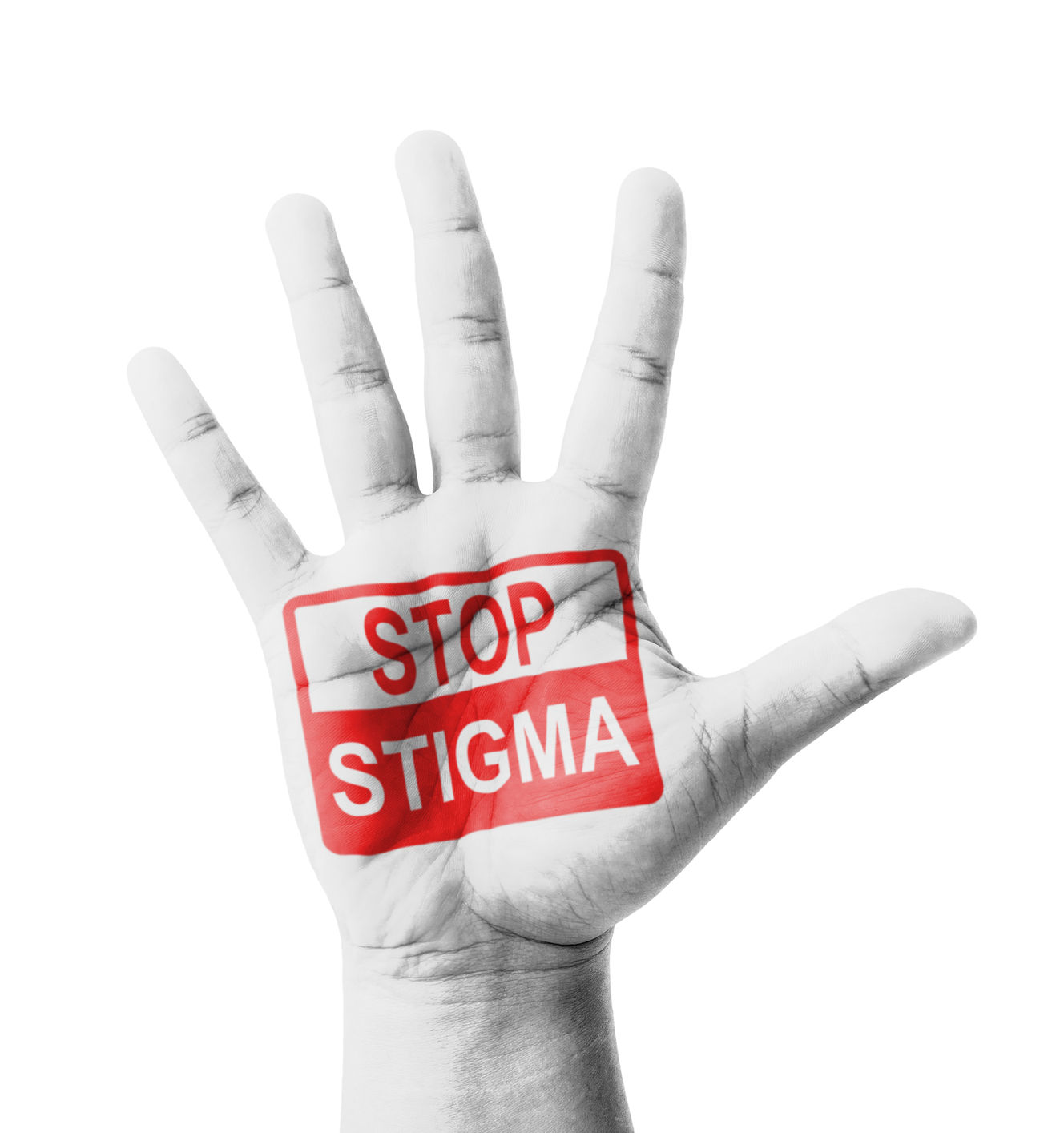 In this post I want to offer some thoughts of living with, and recovering from, an eating disorder while doing a PhD. I’ll start with the disclaimer: eating disorders come in so many different forms and I can only speak from my experience of anorexia, but I have tried to focus here on points that I hope may be of use to those with other eating disorders, and perhaps also other mental health problems more widely. In my experience, doing a PhD while suffering from an eating disorder was an incredibly isolating experience: although I knew people suffering from eating disorders, and people with whom I could share the struggles of the PhDs, it felt as though there was no one who understood the complex difficulties that result when those two worlds collide. So I write this if only to say, you’re not the only one, and that it’s possible to come out the other side.
In this post I want to offer some thoughts of living with, and recovering from, an eating disorder while doing a PhD. I’ll start with the disclaimer: eating disorders come in so many different forms and I can only speak from my experience of anorexia, but I have tried to focus here on points that I hope may be of use to those with other eating disorders, and perhaps also other mental health problems more widely. In my experience, doing a PhD while suffering from an eating disorder was an incredibly isolating experience: although I knew people suffering from eating disorders, and people with whom I could share the struggles of the PhDs, it felt as though there was no one who understood the complex difficulties that result when those two worlds collide. So I write this if only to say, you’re not the only one, and that it’s possible to come out the other side.
![photo 2[4]](http://www.nadinemuller.org/wp-content/uploads/2014/03/photo-24.jpg) While I felt alone in my illness, the statistics tell a different story: a recent campaign by BEAT, the national Eating Disorders Association, looked at the problem of eating disorders within universities. The report focuses on undergraduate students, but many of the issues raised remain true for postgraduate students – in fact I suspect that for many sufferers, entering further into the world of academia acts as a catalyst for these problems to worsen. This was certainly the case for me: having had an eating disorder for many years prior to the PhD, it was this period that exacerbated the illness to its worst. Difficulties that will be familiar to all PhD students – isolation of PhD study, imposter syndrome, anxiety and perfectionism, to name but a few – created a vicious circle in which my eating disorder could steadily worsen. Days spent studying alone at home fostered the social isolation that anorexia thrives upon, allowing eating disordered thoughts and behaviour patterns to become increasingly entrenched. The anxiety of imposter syndrome was further fuel for the eating disorder to thrive: considering myself not good enough to be in academia I further believed that my ability to do a PhD depended upon my anorexia, which gave me the drive to work hard enough to succeed in the competitive world of academia. I told myself that I couldn’t possibly be good enough to get the PhD on my own, I was nothing without anorexia; so how could I possibly stop, when succeeding in my PhD felt so entirely dependent upon my illness?
While I felt alone in my illness, the statistics tell a different story: a recent campaign by BEAT, the national Eating Disorders Association, looked at the problem of eating disorders within universities. The report focuses on undergraduate students, but many of the issues raised remain true for postgraduate students – in fact I suspect that for many sufferers, entering further into the world of academia acts as a catalyst for these problems to worsen. This was certainly the case for me: having had an eating disorder for many years prior to the PhD, it was this period that exacerbated the illness to its worst. Difficulties that will be familiar to all PhD students – isolation of PhD study, imposter syndrome, anxiety and perfectionism, to name but a few – created a vicious circle in which my eating disorder could steadily worsen. Days spent studying alone at home fostered the social isolation that anorexia thrives upon, allowing eating disordered thoughts and behaviour patterns to become increasingly entrenched. The anxiety of imposter syndrome was further fuel for the eating disorder to thrive: considering myself not good enough to be in academia I further believed that my ability to do a PhD depended upon my anorexia, which gave me the drive to work hard enough to succeed in the competitive world of academia. I told myself that I couldn’t possibly be good enough to get the PhD on my own, I was nothing without anorexia; so how could I possibly stop, when succeeding in my PhD felt so entirely dependent upon my illness?
 It seems straightforward enough now to recognise that this was not the case, and that being ill was a hindrance not a help, making it ever harder to produce the work required of me. Many eating disorder sufferers are reluctant to admit that the negative effects of the illness inhibit daily life; looking back, I’m not sure how I managed to get to the library most days, let alone write a PhD. Physical symptoms included fainting, dizziness, extreme cold, headaches, stomach ache, muscle pain, bruising, tiredness and joint pain; psychological effects caused by the impact of starvation on the brain meant difficulty sleeping, being unable to think about anything other than food, poor concentration span, and particular difficulty with abstract or conceptual thought. There are also a host of associated mental health problems that often accompany an eating disorder, such as depression and self-harm. Finally there are the implications of extreme anxiety in social situations involving food and drink – i.e., the vast majority of academic events; at my worst, I have dropped out of conferences at a day’s notice because the fear of eating in an unknown situation became so great.
It seems straightforward enough now to recognise that this was not the case, and that being ill was a hindrance not a help, making it ever harder to produce the work required of me. Many eating disorder sufferers are reluctant to admit that the negative effects of the illness inhibit daily life; looking back, I’m not sure how I managed to get to the library most days, let alone write a PhD. Physical symptoms included fainting, dizziness, extreme cold, headaches, stomach ache, muscle pain, bruising, tiredness and joint pain; psychological effects caused by the impact of starvation on the brain meant difficulty sleeping, being unable to think about anything other than food, poor concentration span, and particular difficulty with abstract or conceptual thought. There are also a host of associated mental health problems that often accompany an eating disorder, such as depression and self-harm. Finally there are the implications of extreme anxiety in social situations involving food and drink – i.e., the vast majority of academic events; at my worst, I have dropped out of conferences at a day’s notice because the fear of eating in an unknown situation became so great.
It was half way through my PhD when I hit breaking point, and finally sought help for my eating disorder. I was very lucky to be living in the right area, and referred to an excellent specialist eating disorders centre; for many people those services simply are not available. The reality of recovery was much more complicated than I can detail here, but suffice to say that therapy made me worse before I got better, and that as a result I had to face telling my supervisors about my eating disorder for the first time.
 There is so much stigma around mental health, and it is so little discussed in academia, that it is difficult to know what will be the consequences of breaking the silence. In the case of eating disorders, there are additional worries caused by misconceptions of the illness in the media; anorexia is often perceived as an extreme diet, not a serious mental health problem, and I worried my disorder would seem vain and superficial in the context of academia. I also thought that my illness seemed so obviously self-inflicted that it was wasting others’ time to ask for support. Admitting to having an eating disorder in a professional context was a very uncomfortable move, and I had little idea of how to approach the conversation with my supervisors.
There is so much stigma around mental health, and it is so little discussed in academia, that it is difficult to know what will be the consequences of breaking the silence. In the case of eating disorders, there are additional worries caused by misconceptions of the illness in the media; anorexia is often perceived as an extreme diet, not a serious mental health problem, and I worried my disorder would seem vain and superficial in the context of academia. I also thought that my illness seemed so obviously self-inflicted that it was wasting others’ time to ask for support. Admitting to having an eating disorder in a professional context was a very uncomfortable move, and I had little idea of how to approach the conversation with my supervisors.
There were a few steps I took which eased the process, and these may be helpful for others broaching similar conversations about mental health. I emailed in advance asking for a meeting – outside of normal supervision time – to discuss some personal difficulties. I kept the email brief but flagged up that there was something particular to discuss, so that there was some prior context when I walked into the room. I wrote down some key pointers that I needed to mention in advance, including:
- The exact diagnosis I had been given and what this meant.
- The programme of treatment I had been put onto, and the expected duration of aspects of the programme (this was unpredictable, but it helped to have a sense of perspective of what would likely be happening over the next few weeks and months, and to know when I could schedule meetings around appointments).
- The ways in which the eating disorder effected my academic work; I was brief, but covered some of the points above to give my supervisors an idea of why work was becoming increasingly difficult.
During the meeting, I tried to keep things factual and to these points. Together, we came up with a plan of action and I was clear of what the outcomes of the meeting were.
 The response of my supervisors was everything I could have hoped for: they showed compassion for my wellbeing, were forthcoming about how they could support me academically, and were informative on the administrative aspects of illness during the PhD. Above all, they treated my mental health problem with the same seriousness, respect and lack of judgement as if it had been a purely physical illness. I was offered 6 months temporary withdrawal from the PhD programme while I went through recovery. My supervisors and department were very encouraging about my taking this leave so that I could come back to the PhD well and refreshed from a break. In my case, I decided that it was not in my best interests to take time out while going through recovery; I wouldn’t say this is the right decision for everyone and it’s important that students should feel supported to make what they feel is the best decision for their recovery. There were various reasons why I didn’t take the leave offered, but most important was that I wanted to be able to recover in a way that I knew would be sustainable in the context of academic life. Staying enrolled on my PhD while in recovery meant that I was putting in place recovery strategies that I knew would work alongside the pressures of my everyday workload, and enabled me to find ways in which the unhealthy cycle, whereby work and anorexia exacerbated each other, could be broken.
The response of my supervisors was everything I could have hoped for: they showed compassion for my wellbeing, were forthcoming about how they could support me academically, and were informative on the administrative aspects of illness during the PhD. Above all, they treated my mental health problem with the same seriousness, respect and lack of judgement as if it had been a purely physical illness. I was offered 6 months temporary withdrawal from the PhD programme while I went through recovery. My supervisors and department were very encouraging about my taking this leave so that I could come back to the PhD well and refreshed from a break. In my case, I decided that it was not in my best interests to take time out while going through recovery; I wouldn’t say this is the right decision for everyone and it’s important that students should feel supported to make what they feel is the best decision for their recovery. There were various reasons why I didn’t take the leave offered, but most important was that I wanted to be able to recover in a way that I knew would be sustainable in the context of academic life. Staying enrolled on my PhD while in recovery meant that I was putting in place recovery strategies that I knew would work alongside the pressures of my everyday workload, and enabled me to find ways in which the unhealthy cycle, whereby work and anorexia exacerbated each other, could be broken.
 I finished therapy around the time that I submitted my PhD, although neither ending is that simple to define, and both the process of recovery and the time after the PhD submission have presented new uncertainties and challenges. Now fully recovered, perhaps the biggest challenge of all is to keep hold of the importance of mental wellbeing within a work culture that feels so set against that. I have said often that one of the hardest things about recovering from an eating disorder is realising just how disordered society is when it comes to food and weight: being recovered is to find yourself in the unexpected situation of having a healthier relationship with food and weight than the majority of people around you, and constantly having to fight against the pressures of a disordered culture. In a similar vein, I’d say that the hardest thing about recovering from mental illness in academia is realising the extent to which the entire system is deeply disordered in its attitudes towards mental health: asserting one’s right to mental wellbeing sometimes feels like the most rebellious and revolutionary of acts one can perform as an academic. For my part, I refuse to let work drive me to ill health again; I’ve seen how fragile health is, and taken too many chances to know that nothing is worth that risk. But it took getting extremely sick for me to be able to reach this point, and it is a daily challenge to maintain that belief; academia needs a culture change where we start to view mental wellbeing as a right, not a luxury.
I finished therapy around the time that I submitted my PhD, although neither ending is that simple to define, and both the process of recovery and the time after the PhD submission have presented new uncertainties and challenges. Now fully recovered, perhaps the biggest challenge of all is to keep hold of the importance of mental wellbeing within a work culture that feels so set against that. I have said often that one of the hardest things about recovering from an eating disorder is realising just how disordered society is when it comes to food and weight: being recovered is to find yourself in the unexpected situation of having a healthier relationship with food and weight than the majority of people around you, and constantly having to fight against the pressures of a disordered culture. In a similar vein, I’d say that the hardest thing about recovering from mental illness in academia is realising the extent to which the entire system is deeply disordered in its attitudes towards mental health: asserting one’s right to mental wellbeing sometimes feels like the most rebellious and revolutionary of acts one can perform as an academic. For my part, I refuse to let work drive me to ill health again; I’ve seen how fragile health is, and taken too many chances to know that nothing is worth that risk. But it took getting extremely sick for me to be able to reach this point, and it is a daily challenge to maintain that belief; academia needs a culture change where we start to view mental wellbeing as a right, not a luxury.
This is something that I was looking for when I was at my worst. Though not strictly academia, I was in a similar situation in that I was diagnosed with anorexia during medical school. I started tentatively pursuing some type of treatment during my final year of school and during my internship finally entered more intensive treatment. I ultimately had to take a leave of absence from training to go to day programming full time for several months to get to a better place. I just returned to training full time and its been a big adjustment. I was fortunate that I was able to speak the medical language of my providers, and my program directors similarly understood the diagnosis and medical implications. I didn’t uniformly face support and acceptance, but I did have an overall positive experience with taking the time for treatment during training.
Thank you for posting this, I can relate to all the emotions that you are describing. I was first diagnosed with anorexia in my teenage years and relapsed twice as an adult, I too am following a career pathway in academia and have found that not even a degree in neuroscience helped me remove the experience of anorexia. Mentally, I can rationalise everything that is happening within my anorexic brain (here I should mention I have also been diagnosed with OCD so that keeps the thoughts into a never-ending loop) but psychologically I cannot rid myself of the relapses that come periodically. Within periods of heightened stress, I perform very well academically, which unfortunately heightens my anorexic thoughts and causes my relapses. I find that extreme perfectionism almost triggers it and once I am happy with my academic results I tend to think ‘what else can I be happy with now… I know, my competitive starvation’. Unfortunately for myself, anorexia has always been the addiction to starvation and achievement I felt when refusing food. To top this off, an overwhelming fear of becoming a woman has led me into the pathway of researching feminist theories as well. I can also relate to the feelings of ‘cheating feminism’ when falling back into anorexic relapses. I would just like to thank you so much for sharing your experiences because anorexia in this environment is extremely isolating and even when support is given, simply not seeing anyone else but yourself going through this can make you lonely enough. While science has led me to believe there is no point in praying I just extend my hope that one way or another we can beat this.
Did you have trouble concentrating because of how hungry you were at times? There are moments where I am just too famished to do my readings or get some writing done. Paradoxically, when I am too “full” I also just cannot get work done.
Our search on “whether an Anorexic should do a PhD” on the net has led us here. We are adult parents of an adult anorexic girl desperately searching for a solution her miseries.
Our daughter is 29 years old and is an international PhD student in a university in USA. Though she was diagnosed with Anorexia during 2011 while being a student in UK, she recovered after spending a couple of months in a specialized hospital in London.
Things were fine for her during the first two years of her PhD course and she was doing great getting all ‘A’ grades and good feedbacks from her professors. However, about 4-5 months ago, a difference of opinion with her guide for a paper she was working on took an ugly turn when she received a series of emails containing abusive language from her professor which lead to her breakdown and resurfacing of her Anorexic thoughts. She started struggling with her eating and taking a lot of time in her calorie counting leading to her failing to fulfill her hour wise commitment to the department though she continued working and submitting her work from home.
Though she is duly registered with her school’s Disability Resource Centre, the school authorities have not only been insensitive to her medical condition but are refusing to accept this as a disability and the school has withdrawn her fee waiver and scholarship. Her department head and dean have also been very rude to her and have even asked her to take a leave of absence.
All this has made life miserable for her and being alone in an alien land (we aren’t from USA) with no help has added to her miseries. Also, with nothing else to keep her occupied, she is sliding back into anorexic state. She has drawn herself into a shell and is not communicating with others. We as her parents are really concerned about her health and well being specially since we are not there with her physically. We have contacted every possible office of the university including its highest level but they are not responding.
Though her training during her hospitalization in London has helped her to continue a calorie counted eating, she is losing weight rapidly. She is also losing her self-esteem, confidence and even desire to live but is refusing to return back to us with what she calls a stigma of not being able to complete her PhD. Her financial condition too is a cause of concern to us as she is no longer getting any funds from her school. Further, though she had been seeing a Doctor in her university, lately she has been refusing to go to him either. We are really in a fix as to what to do and how to help her.
We are looking for an advise on two specific things, one how to support our daughter and provide her the best possible recovery treatment in the US, and two, how to seek help and co-operation of her school in rehabilitating her in the course once she is in a position to do so as we feel that once she joins back, it may be possible for her get hold of herself and bring her life back on track. We would also like to know if the US law provides her with any rights or privileges on account of her medical condition and if yes, should we consult a lawyer for securing justice for our daughter?
Hi. I found this piece to be very moving and relatable. I am doing my doctoral dissertation on eating disorder recovery among female doctoral students in psychology. This feminist study aims to understand how doctoral students negotiate recovery during their doctoral training. Participation in the study requires one 60 minute interview and one 10-15 minute follow-up interview both over phone, skype, or in person (depending on where you live). The study is approved by my school’s IRB board and I would be happy to provide additional information if you or others are interested.
I would be interested in further info about this, perhaps you could post a link via which I can get in touch? Thank you.
How did you find a reputable therapist able to specifically treat an eating disorder?
The best thing would be to go to your gp, who can refer you to specialist ED services in your area.
I think this is a really important post and thankyou for writing it. I’m also a ‘recovered’ anorexic and faced relapse during the first year of my PhD much to my shame. It was completely fuelled by my burgeoning uncertainties, lack of self-confidence, and overwhelming imposter syndrome. My feelings of not being good enough for academia were conflated with those telling me I wasn’t thin enough. And the hours alone thinking just gave me time to focus on these feelings – especially as I was too hungry to concentrate on my work anyway. I felt that as an educated & feminist woman doing a PhD in the field of gender studies, my eating disorder (which I’d first been diagnosed with 8 years earlier) should not be affecting me – surely I was above that? I’d done the reading, I knew my stuff, so why was I still feeling that way? This put me in a situation of constant conflict and like you highlight, I felt completely, terribly, and painfully alone. Not ‘thin enough’ to get help through my GP, I joined an eating disorders group provided by my uni’s student support service. I don’t know what I expected, but even there I felt isolated. As a queer feminist PG from gender studies, I was approaching my eating disorder from a critically and emotionally different perspective to the heterosexual undergraduates in the group. The whole experience was problematic for me on many levels and for me really illustrates some of the difficulties not only posed by the solitary and hypercritical environment that is a PhD, but also fostered by the analytical criticism inherent therein. I think there’s such shame about having mental health issues within academia, which is, afterall, a climate of understanding, criticism, and knowledge. That’s why your post & this series is so important – so thanks to you & Nadine for writing about this stuff.
Thank you so much for your thoughtful comment. I think you pick up on a really important point about being a (feminist) academic with an ED – as I said, I worried that my ED would seem superficial to academic colleagues, but I have also felt like a “bad feminist” for having an ED because I “should know better” (and there’s a whole other post in that). At the same time, those academic discourses informed my approach to my own ED and, as you identify, I struggled to fit in with other ED sufferers because I couldn’t think about my own experience outside of those wider socio-cultural contexts and conflicts. It’s a doubly isolating position.
I’m so sorry that you didn’t get the support you needed, I’m all too aware that my experience of good support just isn’t the case for many – and prior to this I had 12 years in and out of various MH services, some helpful, some less so, so I realise just how lucky I was in finally reaching this position and that it is much, much harder for those going it alone.